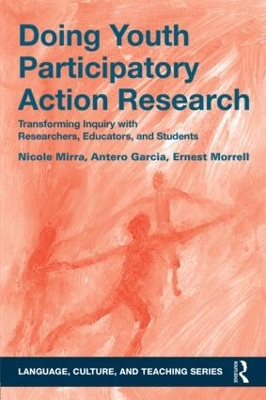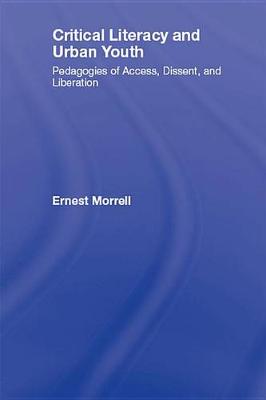Language, Culture, and Teaching
2 total works
Doing Youth Participatory Action Research
by Nicole Mirra, Antero Garcia, and Ernest Morrell
Doing Youth Participatory Action Research offers an unprecedented, in-depth exploration of the pragmatics and possibilities of youth-driven research. Drawing upon multiple years of experience engaging youth in rigorous, critical inquiry about the conditions impacting their lives, the authors examine how YPAR encourages the educational community to re-imagine the capabilities of young people and the purposes of teaching, learning, and research itself.
Much more than a "how-to" guide for those interested in creating their own YPAR projects, this book draws upon the voices of students and educators, as well as the multiple historical traditions of critical research, to describe how youth inquiry transforms each step of the traditional research process. From identifying research questions to collecting data and disseminating findings, each chapter details how YPAR revolutionizes traditional conceptions of who produces knowledge, how it is produced, and for what purposes. The book weaves together research, policy, and practice to offer YPAR as a practice with the power to challenge entrenched social and educational inequalities, empower critically aware youth, and revolutionize pedagogy in classrooms and communities.
For researchers, educators, community members, and youth who want to connect, question, and transform the world collectively, Doing Youth Participatory Action Research is a rich source of both pragmatic methodological guidance and inspiration.
Critical Literacy and Urban Youth offers an interrogation of critical theory developed from the author's work with young people in classrooms, neighborhoods, and institutions of power. Through cases, an articulated process, and a theory of literacy education and social change, Morrell extends the conversation among literacy educators about what constitutes critical literacy while also examining implications for practice in secondary and postsecondary American educational contexts. This book is distinguished by its weaving together of theory and practice.
Morrell begins by arguing for a broader definition of the "critical" in critical literacy - one that encapsulates the entire Western philosophical tradition as well as several important "Othered" traditions ranging from postcolonialism to the African-American tradition. Next, he looks at four cases of critical literacy pedagogy with urban youth: teaching popular culture in a high school English classroom; conducting community-based critical research; engaging in cyber-activism; and doing critical media literacy education. Lastly, he returns to theory, first considering two areas of critical literacy pedagogy that are still relatively unexplored: the importance of critical reading and writing in constituting and reconstituting the self, and critical writing that is not just about coming to a critical understanding of the world but that plays an explicit and self-referential role in changing the world. Morrell concludes by outlining a grounded theory of critical literacy pedagogy and considering its implications for literacy research, teacher education, classroom practice, and advocacy work for social change.

